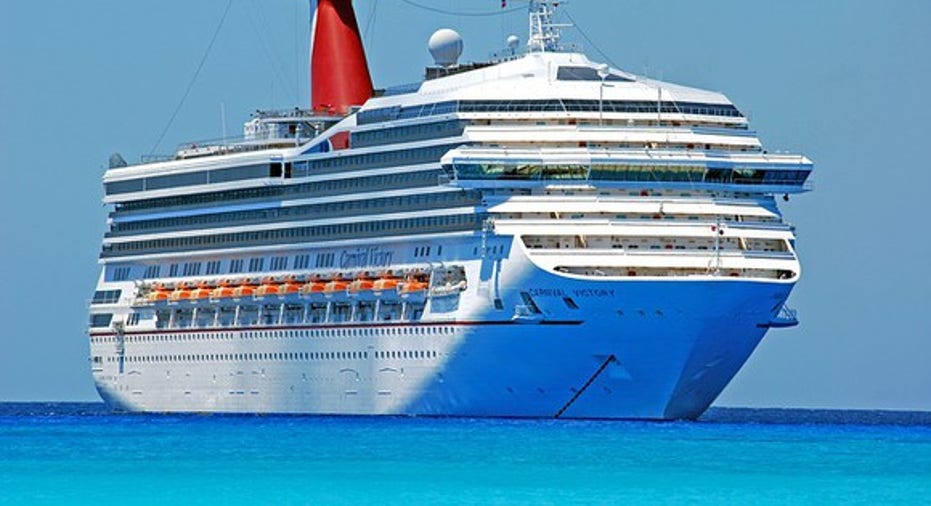Most Americans Forget to Plan for This Huge Retirement Expense

As Americans, we tend to work hard. Not only are we given fewer vacation days than other nations, but an estimated 41% of Americans don't use all their allotted vacation time, while more than 75% of us admit to working when we're actually supposed to be on vacation. It's no wonder, then, that so many of us look forward to retirement not just for the permanent break from the daily grind, but for the ability to enjoy the countless hours of leisure time we've been missing during our working years. But while most people are unquestionably keen on enjoying retirement to the fullest, there's one thing still standing in their way: money.
Image source: Pixabay.
Planning for leisure in retirement
We often think about things like housing costs and healthcare when planning for retirement, but let's not forget that once we stop working, we're going to have a lot of free time on our hands. And while many of us imagine spending our retirement days traveling, pursuing hobbies, and doing activities with family, according to a recent report from Merrill Lynch, a good 58% of retirees haven't budgeted for leisure activities in the course of their retirement planning. Given that most older Americans are already behind on retirement savings, this should serve as a wake-up call for anyone whose retirement plan doesn't factor leisure costs into the equation.
According to the Merrill Lynch study, 95% of retirees would rather spend their money on experiences in retirement than buy new things. But as we all know, experiences cost money, too -- especially travel. In 2016, retirees will spend an estimated $180 billion on leisure travel, and that figure is expected to climb to $4.6 trillion over the next 20 years. Yet 67% of retirees have not budgeted for travel at all when calculating their retirement expenses.
And it's not just travel we need to think about; there's also the cost of everyday leisure to consider. Whether it's playing golf, relaxing at brunch, or taking a class, many day-to-day activities cost money. Sure, there are senior discounts (like the ever-popular early bird special) that can help retirees stay occupied on the cheap, but even with reduced pricing, activities like theater and museum visits can really add up.
Creating your retirement budget
If you're hoping to enjoy a piece of the good life during retirement, you'll need to factor in leisure costs when coming up with your budget. The amount you'll ultimately need depends on your personal version of what retirement looks like. For example, if your plan is to join a country club and take three overseas vacations each year, you'll need a lot more money than someone whose goal is to spend time with the grandkids and spring for the occasional movie theater matinee. Once you estimate your non-negotiable living costs, like housing, transportation, food, and healthcare, think about how you hope to be spending most of your days and pad your retirement budget accordingly.
Ramping up your savings
Figuring out how much money you'll need for leisure in retirement is a step in the right direction, but you'll also need to make sure you're on track to meet your savings target -- which means saving as much as you possibly can, and as early as you possibly can. Imagine you're 28 years old and your plan is to enjoy a travel-heavy retirement starting at age 65. If you manage to save $10,000 a year, invest that money mostly in stocks, and generate an average annual return of 8% (which is actually below the market's average), by the time you reach 65, you'll have just over $2 million, which can go a long way toward airline tickets and hotel stays.
But watch what happens if you're only able to save $5,000 a year. Even if your investments do just as well, you'll have grown your savings to just $1 million by age 65 -- not at all shabby, but not nearly as sweet as having double that amount. Similarly, if you wait till age 40 to start saving, you'll have just $730,000 by age 65, even with putting away $10,000 a year. And if you start investing just $5,000 a year starting at 40, by 65, your savings balance will be $365,000 -- again, not a small figure, but disappointing compared to the $2 million you could've had by starting earlier and saving more.
Retiring in style usually means making sacrifices along the way. You may need to cut back on certain luxuries now to enjoy more financial flexibility later on. But when you're spending your golden years walking along exotic beaches and sipping fine wine under the stars, you'll sure be happy you did.
The article Most Americans Forget to Plan for This Huge Retirement Expense originally appeared on Fool.com.
Try any of our Foolish newsletter services free for 30 days. We Fools may not all hold the same opinions, but we all believe that considering a diverse range of insights makes us better investors. The Motley Fool has a disclosure policy.
Copyright 1995 - 2016 The Motley Fool, LLC. All rights reserved. The Motley Fool has a disclosure policy.



















